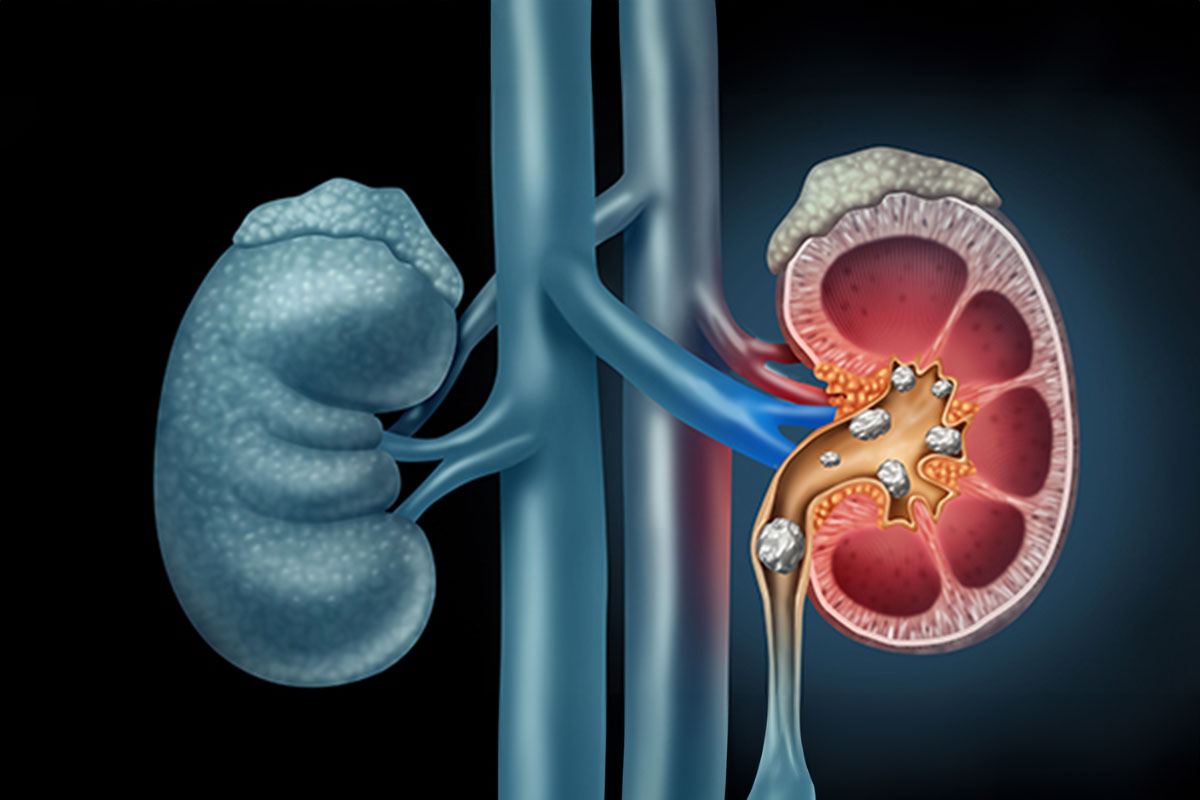What Are Kidney Stones?
Kidney stones are hard deposits made of minerals and salts that form inside the urinary tract when substances in the urine—like calcium, oxalate, and uric acid—crystallise and clump together.
- Most stones are calcium-based, but other types exist, such as uric acid, struvite, or cystine stones.
- They are very common—affecting approximately 1 in 10 people in their lifetime.
- Men are more likely than women to develop kidney stones.
- After passing a kidney stone, the risk of recurrence is around 10% per year.
What Are the First Signs of Kidney Stones?
Common Early Symptoms:
- Pain in the side, lower back, or abdomen – usually severe, can come on suddenly and may radiate to the groin
- Pain during urination
- Frequent or urgent need to urinate
- Burning sensation when urinating
- Blood in the urine (haematuria) – may appear pink, red, or brown
- Nausea or vomiting – especially if the stone causes severe pain or blockage
- Fever and chills – may signal an associated infection, which requires urgent medical attention

But Sometimes, There Are No Symptoms at All:
- Some kidney stones are asymptomatic and are discovered incidentally on imaging (ultrasound or CT scan) performed for another reason.
- Small stones may pass through the urinary tract without causing noticeable discomfort.
When Should You Be Concerned?
If you’re experiencing unexplained pain, especially in the lower back or groin, or blood in your urine, it’s important to see your GP or a urologist. Early assessment and diagnosis can:
- Confirm the presence of a stone
- Reduce the risk of complications (e.g., blockage or infection)
- Help plan appropriate treatment if needed
Your doctor may recommend:
- A urine test
- Blood tests
- Ultrasound or CT scan to visualise the urinary tract
How Are Kidney Stones Managed?
Management depends on the size, location, and type of stone, as well as the severity of symptoms. Options include:
- Observation and increased fluid intake (for small stones likely to pass on their own)
- Pain relief and medication
- Extracorporeal shock wave lithotripsy (ESWL) – to break up stones
- Ureteroscopy or laser treatment
- Surgical removal (in rare or complex cases)
Can Kidney Stones Be Prevented?
Yes—prevention is possible and important, especially if you’ve had stones before. Key steps include:
- Drink plenty of fluids – aim for clear, dilute urine throughout the day
- Reduce dietary salt intake
- Limit animal proteins (e.g., red meat, shellfish)
- For some, reducing oxalate-rich foods (e.g., spinach, nuts) may help
- Your doctor may suggest specific dietary or medical strategies based on the type of stone
